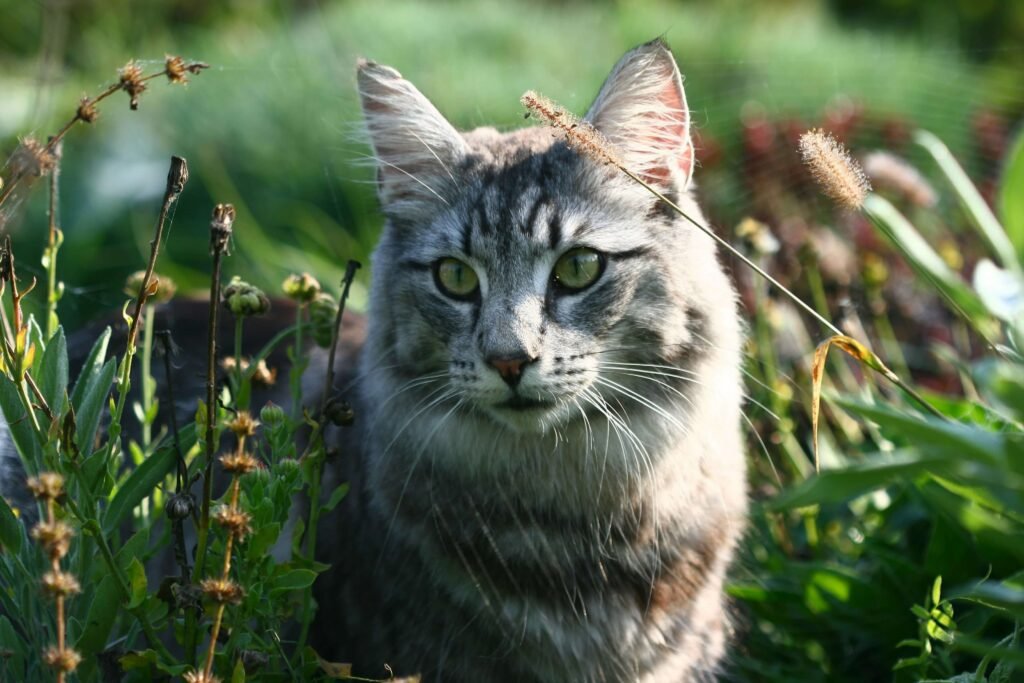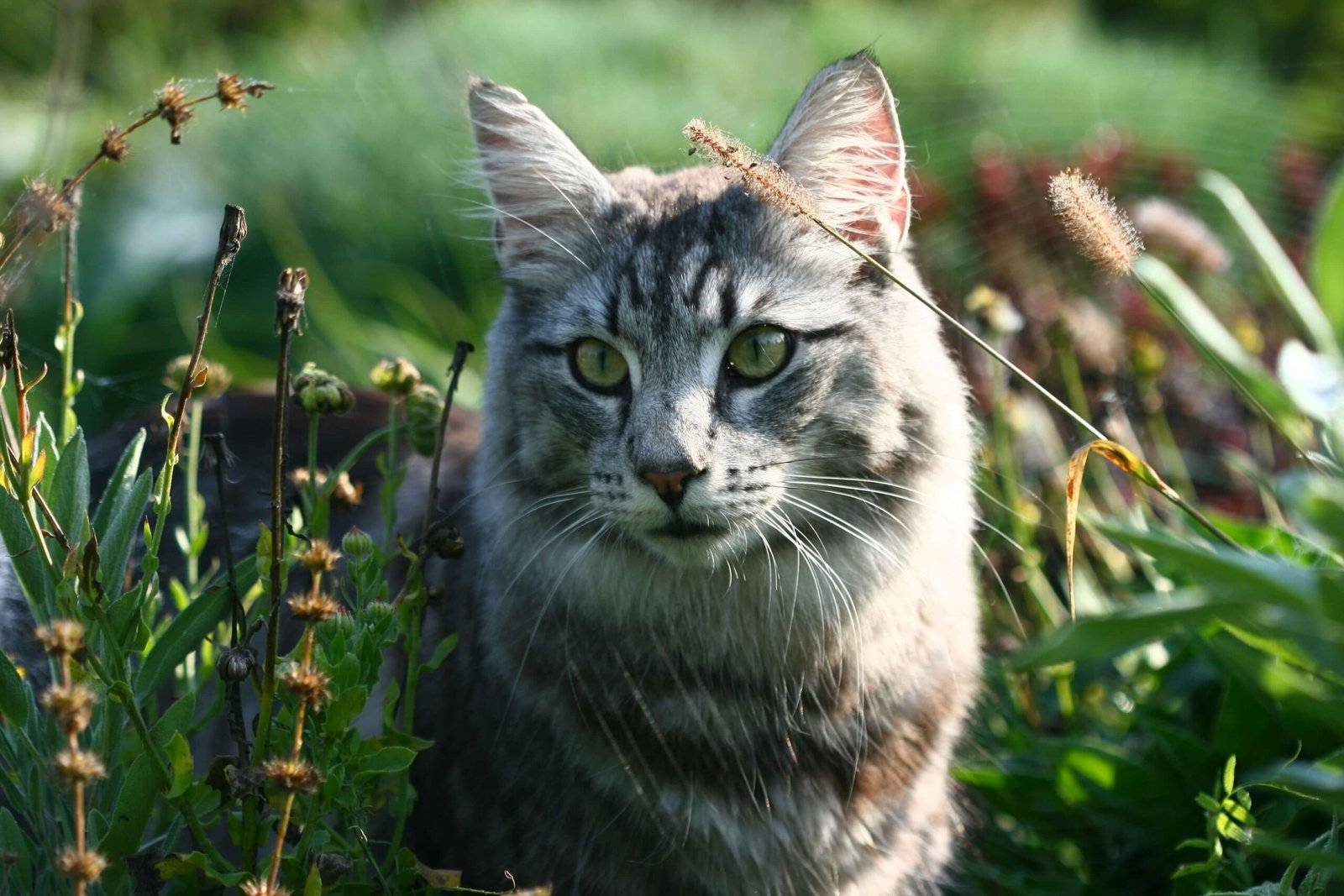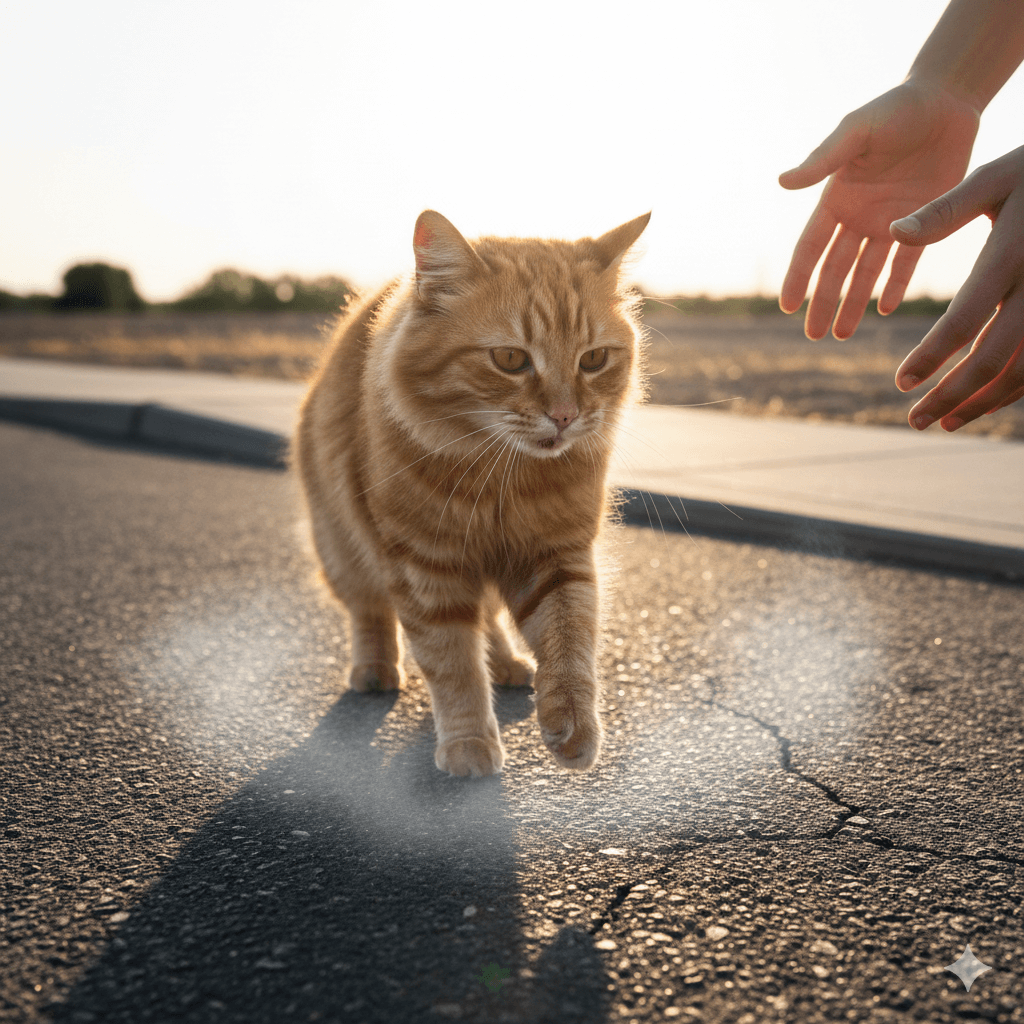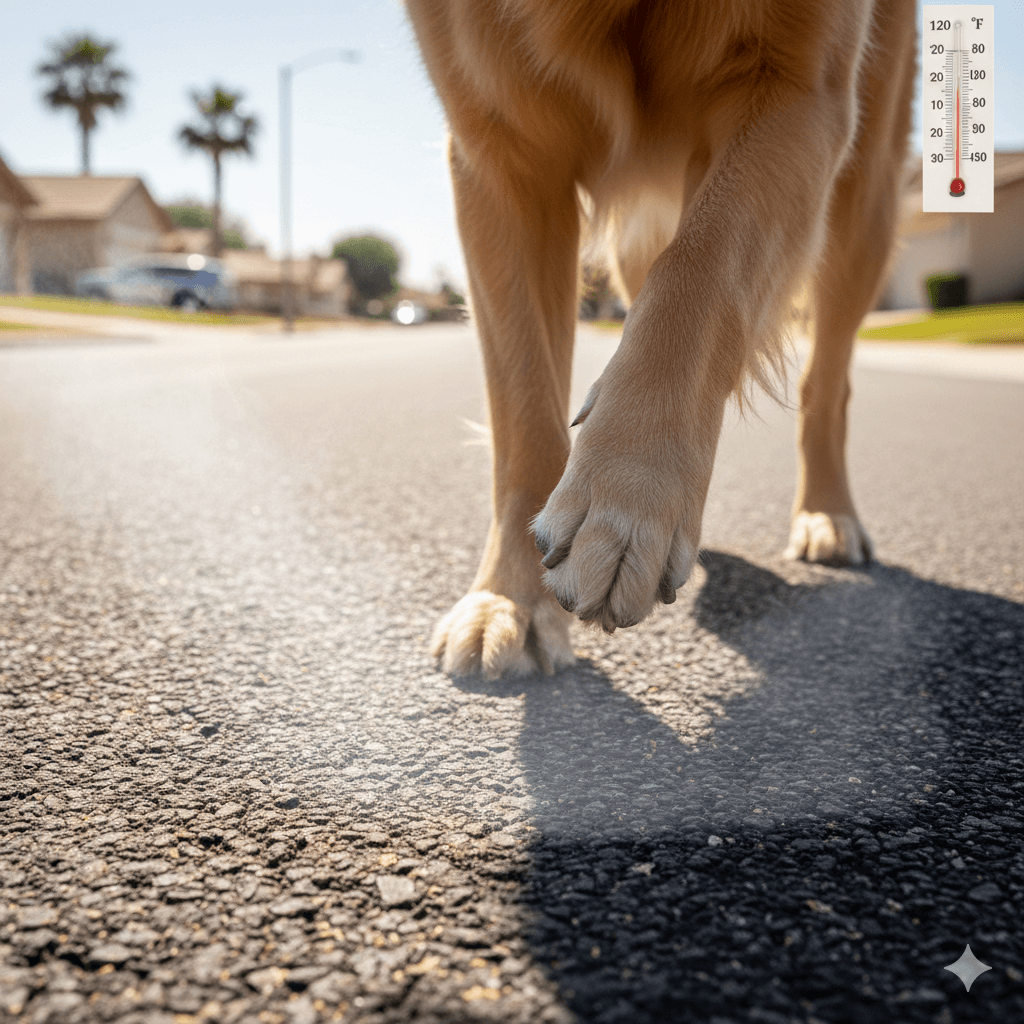Why Does My Cat Stare at Me? Decoding Feline Behavior
Cats are mysterious creatures, and their behavior often leaves us wondering what’s going on in their curious little minds. One of the most common yet puzzling behaviors cat owners notice is their tendency to stare intently. Whether it’s during mealtime, while you’re working, or even when you’re sleeping, your cat’s unwavering gaze can feel both endearing and slightly unnerving. But why does your cat stare at you? Is it a sign of affection, curiosity, or something else entirely? In this blog post, we’ll explore the reasons behind this behavior, offering insights into your feline friend’s world and helping you better understand the bond you share.
Reasons Behind Your Cat’s Staring Behavior
When your cat stares at you, it’s usually trying to communicate something. Cats rely heavily on body language and subtle cues to express themselves, and staring is one of their many tools. Here are some common reasons why your cat might be giving you that intense gaze:
Hunger or Food Anticipation
If your cat is staring at you around mealtime, it could simply be a way of reminding you that it’s time to eat. Cats are creatures of habit and know when their feeding schedule is due.Curiosity About Your Actions
Cats are naturally curious animals. If you’re doing something unusual, like typing on a laptop or cooking in the kitchen, your cat might stare to figure out what you’re up to.Affection and Bonding
Staring can also be a sign of love and trust. Cats often use prolonged eye contact to show they feel safe and connected to their humans.Seeking Attention or Playtime
If your cat feels neglected or bored, staring might be its way of asking for interaction or play. Cats crave mental and physical stimulation, and staring can be their silent request.Guarding or Protecting You
Some cats are naturally protective of their owners. If your cat seems to be watching you closely, it could be keeping an eye out for potential threats.
Understanding these reasons can help you interpret your cat’s behavior and respond appropriately. Remember, every cat is unique, so observing patterns in your pet’s actions can provide deeper insights.
Reasons Behind Your Cat’s Staring Behavior
When your cat stares at you, it’s usually trying to communicate something. Cats rely heavily on body language and subtle cues to express themselves, and staring is one of their many tools. Here are some common reasons why your cat might be giving you that intense gaze:
Hunger or Food Anticipation
If your cat is staring at you around mealtime, it could simply be a way of reminding you that it’s time to eat. Cats are creatures of habit and know when their feeding schedule is due.Curiosity About Your Actions
Cats are naturally curious animals. If you’re doing something unusual, like typing on a laptop or cooking in the kitchen, your cat might stare to figure out what you’re up to.Affection and Bonding
Staring can also be a sign of love and trust. Cats often use prolonged eye contact to show they feel safe and connected to their humans.Seeking Attention or Playtime
If your cat feels neglected or bored, staring might be its way of asking for interaction or play. Cats crave mental and physical stimulation, and staring can be their silent request.Guarding or Protecting You
Some cats are naturally protective of their owners. If your cat seems to be watching you closely, it could be keeping an eye out for potential threats.
Understanding these reasons can help you interpret your cat’s behavior and respond appropriately. Remember, every cat is unique, so observing patterns in your pet’s actions can provide deeper insights.
Check this guide 👉Why Cats Stealing Food: Best 7 Expert Tips!
Check this guide 👉Why Does My Cat Have Diarrhea? Best 7 Expert Tips!
Check this guide 👉Why Cats Love to Lay Down: Best 7 Expert Tips!

Interpretation of Your Cat’s Staring | Possible Reasons |
|---|---|
Slow blinking | Affection and trust |
Wide eyes with dilated pupils | Alertness or fear |
Staring during mealtime | Hunger or food anticipation |
Unblinking, confused gaze | Disorientation or discomfort |
Staring while purring | Contentment and happiness |
How to Respond to Your Cat’s Staring
Once you’ve identified why your cat is staring at you, it’s important to respond appropriately. Ignoring your cat’s gaze might leave it feeling frustrated or confused, while responding correctly can strengthen your bond. Here are some tips for handling different staring scenarios:
If It’s Hunger-Related
Feed your cat at consistent times to avoid confusion. If it’s not mealtime, redirect its attention with toys or playtime instead of giving in to begging.For Curiosity About Your Actions
Engage your cat by explaining (even if it doesn’t understand!) what you’re doing. You can also involve it in simple activities, like letting it sniff harmless objects.When It’s a Sign of Affection
Return the slow blink or gently talk to your cat. This reassures your pet that you reciprocate its feelings and strengthens your emotional connection.If Your Cat Wants Attention
Spend quality time playing, grooming, or cuddling with your cat. Interactive toys, such as laser pointers or feather wands, are great for engaging their energy.In Cases of Anxiety or Fear
Provide a calm and safe environment. Remove any stressors and offer comforting spaces like cozy beds or hiding spots where your cat can retreat.
Responding thoughtfully to your cat’s staring helps build trust and ensures your pet feels understood and cared for.
Common Misconceptions About Cat Staring
There are several myths surrounding why cats stare at their owners. While some interpretations may seem plausible, they don’t always align with reality. Here are a few misconceptions to clarify:
“My Cat Is Trying to Dominate Me”
While prolonged staring can sometimes indicate dominance among cats, it’s rarely about asserting control over humans. More often, it’s a sign of curiosity or affection.“Staring Means My Cat Is Mad at Me”
Cats don’t hold grudges in the way humans do. If your cat is staring angrily, it’s more likely reacting to something in its environment rather than being upset with you.“It’s Just a Random Behavior”
Cat staring is rarely random. Even if the reason isn’t immediately obvious, there’s usually a purpose behind it, whether it’s hunger, curiosity, or seeking attention.“Only Sick Cats Stare Intensely”
While illness can cause changes in behavior, including staring, this isn’t always the case. Healthy cats also engage in this behavior for various reasons.“Cats Only Stare When They Want Something”
While wanting something (like food or attention) is a common reason, cats also stare to bond, observe, or simply because they’re curious about their surroundings.
Dispelling these myths can help you approach your cat’s behavior with greater understanding and patience.
Signs Your Cat Is Observing You Closely
Cats are naturally observant creatures, and their staring often reflects their keen interest in their surroundings. When your cat seems to be watching you intently, it could be due to several reasons. Here are some common motivations behind this behavior:
They’re Learning Your Routine
Cats thrive on routine, and they often stare to learn your daily habits. This helps them anticipate events like feeding or playtime.They’re Curious About New Activities
If you’re doing something unusual, such as unpacking boxes or rearranging furniture, your cat might stare to understand what’s happening.They’re Monitoring Your Emotional State
Cats are highly attuned to human emotions. If you seem stressed or upset, your cat might stare to gauge your mood and offer comfort.They’re Guarding Their Territory
Your cat may stare to ensure its environment—and you, as part of it—remains safe from perceived threats.They’re Simply Enjoying Your Presence
Sometimes, cats stare because they find comfort in being near you, even if they aren’t seeking anything specific.
Understanding these behaviors can deepen your appreciation for your cat’s attentiveness and strengthen the bond you share.
How Staring Fits Into Feline Communication
Staring is just one piece of the complex puzzle of feline communication. Cats use a combination of body language, vocalizations, and visual cues to interact with their humans. Here’s how staring fits into their communication toolkit:
A Tool for Nonverbal Interaction
Staring allows cats to convey messages without making a sound, whether it’s a request for food or an expression of trust.A Way to Establish Boundaries
In multi-pet households, staring can help cats assert dominance or establish personal space with other animals.An Indicator of Playfulness
When paired with playful body language, staring can signal that your cat is ready to engage in interactive games or activities.A Method of Seeking Reassurance
If your cat feels uncertain about a situation, staring might be its way of asking for guidance or comfort from you.A Sign of Overstimulation
In some cases, prolonged staring combined with tense body language can indicate that your cat is feeling overwhelmed or overstimulated.
By recognizing these nuances, you can better interpret your cat’s needs and respond appropriately, fostering a harmonious relationship.
Tips for Reducing Unwanted Staring Behavior
While staring is usually harmless, there may be times when it becomes excessive or disruptive. If your cat’s staring makes you uncomfortable or seems compulsive, here are some strategies to address it:
Provide Mental Stimulation
Engage your cat with puzzle toys or interactive games to redirect its focus away from constant staring.Establish Clear Routines
Set consistent feeding, play, and sleep schedules to reduce anxiety-driven staring behaviors.Create Safe Spaces
Offer cozy hiding spots or elevated perches where your cat can retreat and feel secure, minimizing the need to stare for reassurance.Use Positive Reinforcement
Reward your cat with treats or praise when it exhibits calm behavior instead of intense staring.Consult a Veterinarian
If the staring seems sudden or accompanied by other unusual behaviors, consult a vet to rule out underlying health issues.
Implementing these tips can help manage unwanted staring while ensuring your cat remains happy and healthy.
Frequently Asked Questions About Cat Staring
Why does my cat stare at me while I sleep?
Your cat may be curious about your stillness or simply enjoying your presence. Cats are naturally nocturnal, so they might be more active at night.
Is it normal for my cat to stare at me all the time?
Yes, it’s normal. Cats often stare to communicate, observe, or bond with their owners.
Is it normal for my cat to stare at me all the time?
Not necessarily, but if it’s accompanied by other unusual behaviors, consult a vet to rule out health issues.
How can I tell if my cat’s staring is a sign of affection?
Look for slow blinks, purring, or relaxed body language, which are signs of trust and love.
Can staring indicate that my cat is stressed?
Yes, wide eyes and tense body language might suggest stress. Identify potential stressors and create a calming environment.
Building a Deeper Connection Through Understanding
Your cat’s staring behavior is more than just a quirk—it’s a window into their thoughts and emotions. By taking the time to understand why your cat stares at you, you can foster a stronger bond and ensure your pet feels loved and secure. Whether it’s a slow blink of affection, a curious gaze, or a plea for attention, each stare tells a story. Embrace these moments as opportunities to connect with your feline companion and cherish the unique relationship you share. After all, decoding your cat’s behavior is part of the joy of having them in your life.
Newfoundland Dog Personality: Best 7 Expert Tips! – Discover the gentle, loyal, and protective nature of this giant breed perfect for families.
Can Hot Pavement Burn Your Cats Paws? Best 7 Expert Tips! – Learn how to protect your cat’s paws from hot surfaces and prevent painful burns this summer.
Can Hot Pavement Burn Your Dogs Paws? Best 7 Expert Tips! – Learn how to protect your dog’s paws from hot surfaces and ensure safe summer walks.
Irish Wolfhound Size: Best 7 Expert Tips! – Discover the ideal height, weight, and care tips for this majestic giant breed. Learn how to manage their impressive stature responsibly.





